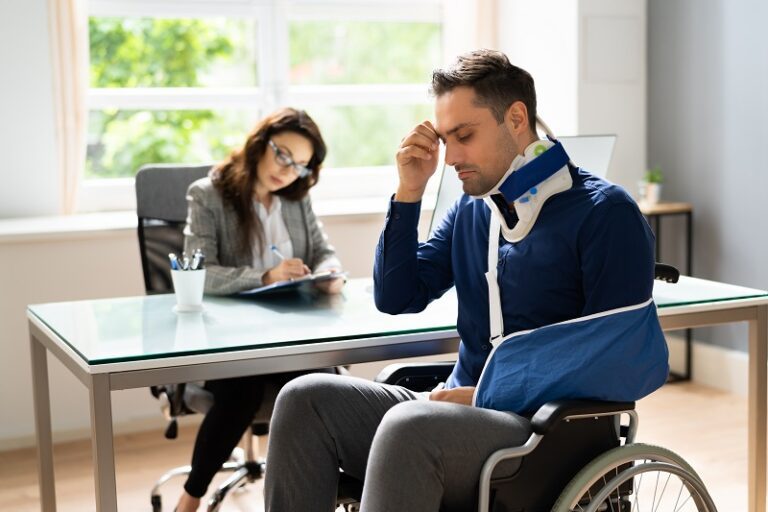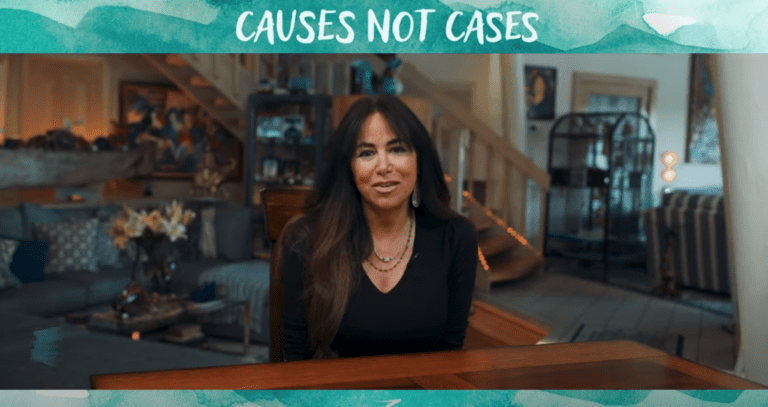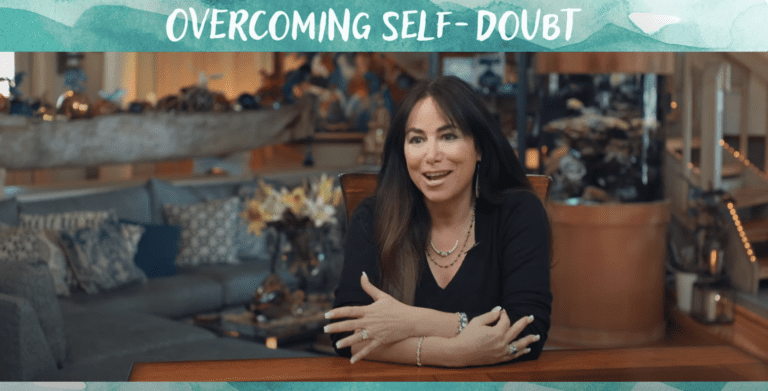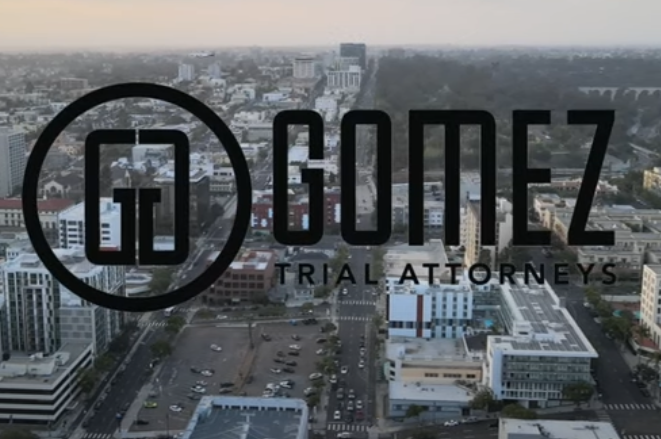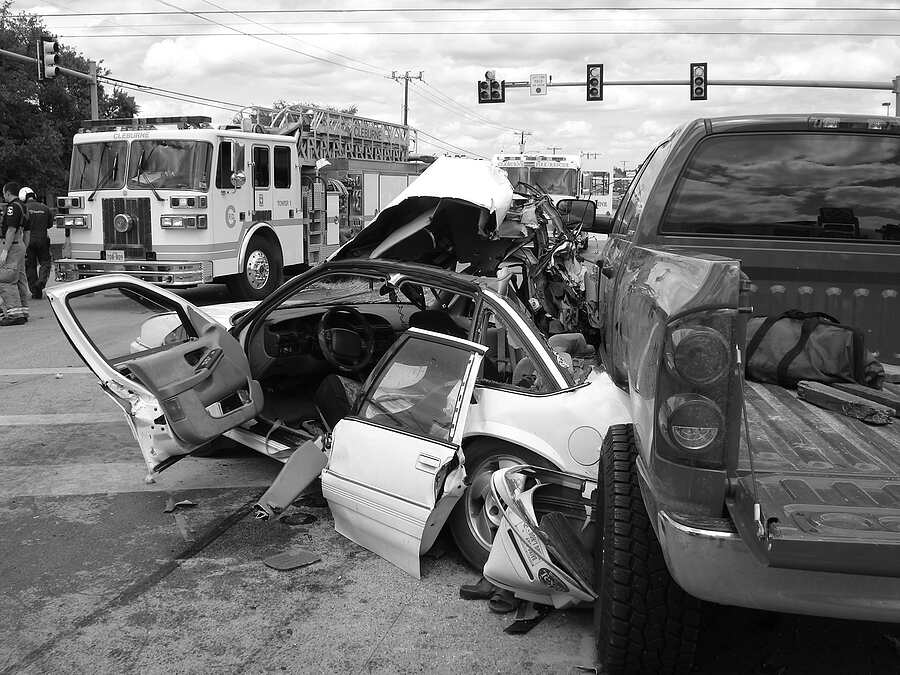
When you sustain injuries in a car accident, you may be entitled to compensation. If you prove the other driver’s negligence, you could receive a fair settlement from their insurance company. However, in some cases, you have to file a lawsuit to obtain a recovery.
[lwptoc]
To take care of all the court-related issues properly, work with a car accident lawyer.
In this blog, you will learn more about going to court to obtain fair compensation for personal injuries sustained in a car accident.
Why you may need to sue
Going to court is always a major step. However, sometimes it is the only way to get the compensation you deserve. The common reasons why you may need to take your car accident case to court are:
Negotiations with the insurance company fail
In most cases, you or your car accident lawyer can negotiate with an insurance company to obtain a reasonable settlement. However, negotiations do not always go as planned.
For example:
- The insurance company may deny liability for the accident. Put another way, the insurance company believes you were the cause of your injuries–not their insured!
- The insurance company may accept liability for the accident but deny your claim for personal injuries because they don’t believe the accident wasn’t forceful enough to cause an injury to the human body.
- The insurance company may deny liability because they are unable to get ahold of their insured.
- Note: Generally, your insurance policy bestows a “Duty to Cooperate” with your insurance company’s investigation into a claim. If the at-fault driver fails to communicate with his or her insurance company, the insurance company is technically allowed to deny a claim for that reason.
If this happens, you may need to take your car accident case to court.
The other driver does not have insurance
If the allegedly negligent driver does not have auto insurance, you may have two ways out:
- Sue the driver personally – unfortunately, if the driver does not have insurance, they are highly unlikely to have sufficient savings to cover your damages. However, an experienced lawyer can help maximize the possible payout.
- File an uninsured motorist claim – if an uninsured motorist option is part of your insurance policy, you could get compensation from your insurance company. Unfortunately, people usually opt for minimal uninsured motorist coverage or do not add this coverage. If you have uninsured motorist coverage, you can obtain compensation from your insurance company and proceed to sue the other driver personally for any amount that exceeds the payout from your own insurance company.
The insurance coverage is insufficient
If the insurance company offers a low payout, you can still negotiate. However, if the insurance coverage has a limit, there is nothing you can do about it.
For example, the allegedly negligent driver’s insurance policy has a $50,000 limit. That is all you can expect the insurance company to pay for your damages.
In California, minimal driver’s insurance includes bodily injury liability coverage of:
- $15,000 per person.
- $30,000 per accident.
Since in a serious accident, damages tend to exceed this amount, many injured parties choose to sue the at-fault driver personally. When you sue the at-fault driver personally, you are seeking compensation from the at-fault driver’s own pockets– their insurance company will only pay what they are contractually obligated to pay. The insurance companies contractual obligations are outlined in the at-fault driver’s insurance policy.
Other parties you may be able to sue after a car accident are:
- Vehicle owner – if the vehicle owner demonstrated negligence by allowing someone they do not trust to drive the car.
- Driver’s employer – if the employer demonstrated negligence by hiring a person who cannot be trusted behind the wheel. For example, a delivery company hires a driver with a substantial DUI record.
- Vehicle manufacturer – if the manufacturer demonstrated negligence by installing faulty parts that failed on the road and caused the accident.
- Government entities – if the government entity demonstrated negligence when paving or repairing the road, which contributed to poor conditions that caused the accident. It is worth noting that suing the government involves many limitations.
Overall, if another party’s negligence contributed to your injuries in a car accident, you may be able to sue.
Proving negligence in a car accident
If you decide to go to court to obtain compensation for personal injuries sustained in a car accident, you need to prove that the person/entity you are suing was negligent. Negligence has four distinct elements that you must prove to obtain a recovery. To prove someone was negligent, you must establish the following: (1) Duty; (2) Breach of Duty; (3) Causation; and (4) Damages.
1. Duty – Every driver has a duty of care while driving on the road
When it comes to driving, all drivers have a legal duty of care to other people on the road. It means they have to act reasonably to ensure the safety of other traffic participants.
2. Breach of Duty
A driver can breach this duty of care in a variety of ways. The most common ways for a driver to breach this duty is by speeding and/or not obeying traffic signals. However, the California Vehicle Code lays out the rules of the road and if the at-fault driver violates one of those rules, it is generally sufficient to establish a breach of this duty.
3. Causation – The defendant’s breach of duty caused your injuries
To succeed in proving causation, you must not only prove that you were injured but that the injuries you suffered were caused by the accident. Causation is broken down into two categories: (a) Actual Cause and (b) Proximate Cause.
-
Actual Cause
To prove the accident was the actual cause of your injuries, you must satisfy the “but for” test. Generally, the ‘but for’ test is satisfied if you can prove that ‘but for’ the at-fault driver’s negligence, you would not have suffered personal injuries. For example, assume a negligent driver rear-ends your vehicle while you are stopped for a red light and you are now experiencing pain in your neck. Further assuming that you had no previous issues with neck pain, the ‘but for’ test would be satisfied because ‘but for’ the at-fault driver’s negligence, you would not have any neck pain.
-
Proximate Cause
Proximate cause refers to foreseeability. Ask yourself, “Is it foreseeable that I am experiencing pain in my neck because the other person negligently rear-ended me?” The answer is almost always “Yes.” Conversely, proximate cause may be difficult to prove if we use the same example above, but now you are claiming that you are suffering from a sunburn as a result of the accident. Proximate cause would likely not be satisfied because a sunburn is not a foreseeable consequence of a rear-end accident. Of course, this is an extreme example but you get the picture.
4. Damages
If you are successful in proving duty, breach, and causation, it is a near certainty that you suffered damages. Generally, the damages a personal injury plaintiff is entitled to recover are compensatory in nature, meaning they are designed to compensate you for what you have lost as a result of the accident. They are not designed to punish the defendant for his or her negligence. Damages are broken into two categories: (1) Economic damages and (2) Noneconomic damages.
Here are some examples of a person’s economic damages:
Medical treatment
If you are receiving treatment for your injuries, you should be compensated for medical expenses.
These costs could include:
- Surgery expenses
- Hospital bills
- Transportation to the hospital
- Doctor’s visits
- Medical equipment
- Therapy bills
- Rehabilitation expenses
- Medications (prescription or over-the-counter)
- At-home care or rehabilitation
In a personal injury case, current medical treatment is only part of the damages. If your injuries require long-term or even life-long care, therapy, and treatment, future expenses can be part of the compensation.
Lost wages
If you have to miss work due to your injuries, you can be compensated for lost wages. You can also seek damages if sustained injuries keep you from working full-time in the future.
For example, if the accident results in a disability, you may not be able to work at full capacity. The at-fault party would need to compensate for the difference between the wages you receive when working full-time vs. part-time.
Property damage
If your car is damaged in the accident, you can receive compensation. Depending on the extent of the damage, the compensation can include car repair or replacement.
In case you used public transportation or a taxi after the accident because your car was too damaged, you could seek compensation for these expenses as well.
The following are examples of noneconomic damages:
Damages you can seek when suing someone for a car accident
If you have been injured in a car accident, you could seek different types of damages. The nature of these damages does not depend on how you try to recover them, through suing or via negotiations with the insurance company.
Pain and suffering
You can get compensation for the physical pain and mental anguish that occurs due to the accident. For example, if you develop a chronic condition or disability, you may not be able to enjoy the same activities as you did before the accident. Such loss of life enjoyment can be compensated financially. Compensation for pain and suffering has to cover the negative effect the car accident has on your life.
Funeral and burial expenses
If your loved one died in a car accident, you could be entitled to compensation that covers:
- Pre-death medical bills
- Burial costs
- Funeral costs
You can also sue for the loss of financial support, emotional support, income, inheritance, and guidance.
Keep in mind that while the above damages are common, they do not limit your compensation. You could seek financial recovery for almost any cost you incurred due to the accident.
Lastly, even if negligence in a personal injury case appears straightforward, it may not always be the case. The defendant’s lawyers (hired by the insurance company) will work hard to prove the absence of liability in your case. Having an attorney on your side could be crucial to proving the other party’s negligence.
Statute of limitations
FYI: The statute of limitations is the time limit the law sets for filing a lawsuit after an incident occurs. According to the California Code of Civil Procedure section 335.1, the general statute of limitations for personal injury cases is two years from the date of the accident. However, some exceptions exist:
- Wrongful death – If a person dies from injuries sustained in a car accident, the family has two years to file a wrongful death lawsuit. The clock starts running on the day of the person’s death, even if it is different from the date of the car accident.
- Only property damage – If you only plan to sue the allegedly responsible driver for property damage, the statute of limitation is three years.
- Suing the government – if you are planning to file a lawsuit against the government, you only have six months to provide the notice of your claim. If the government denies your claim, you have 12 months to file a lawsuit.
- Age – for minors, the clock starts at the time they reach the age of majority (18 years).
- Availability – the statute of limitations may be extended if the at-fault driver is unavailable (e.g. in prison or a mental health facility).
- Mental incapacitation – if the plaintiff suffers severe injuries that cause temporary mental incapacitation, the statute of limitations may be extended.
- Bankruptcy – if the defendant files for bankruptcy, the statute of limitations may be extended. The clock starts running once the bankruptcy proceedings are over.
If you decide to go to court after the statute of limitations is up, the judge is likely going to dismiss your case. Accordingly, you will lose the opportunity to obtain compensation.
Funeral and burial expenses
If your loved one died in a car accident, you could be entitled to compensation that covers:
- Pre-death medical bills
- Burial costs
- Funeral costs
You can also sue for the loss of financial support, emotional support, income, inheritance, and guidance.
Why you need a personal injury lawyer
When suing an allegedly negligent party after a car accident, you may need a personal injury lawyer. Even the most straightforward case could have a variety of nuances that are easy to overlook. As a result, you may not get fair compensation.
A personal injury lawyer can:
Collect evidence
To prove negligence, you need to provide a substantial variety of evidence, such as:
- A police report
- Eyewitness statements
- Photographs from the scene of the accident
- Records of medical treatment
- Documentation of time you missed from work
- Testimonies from doctors and medical experts
When you are busy getting treatment for your injuries, it can be hard to keep track of documents. A lawyer can help make sure they are all in good order.
Take care of litigation
A personal injury lawyer can assess your chances of winning a personal injury case and advise on further action. They will file the claim and serve it to the defendant. As soon as the defendant replies, the discovery phase of litigation begins.
During this phase, the lawyer will collect evidence that can help you prove your car accident case. This could take several months.
After discovery is over, the court sets the trial date. An attorney takes care of all aspects of the litigation phase, representing you during legal proceedings.
Offer advice and support
When you sue someone who hits your car, the case may require extensive attention to detail. A personal injury attorney can walk you through all the aspects of the case, explain your rights, discuss possible outcomes, and make predictions about damage amounts.
When people are getting treatment after a car accident, they rarely have enough time to deal with legal issues. An attorney frees up your time by taking over the process and keeping you updated.
What to do if you lose a personal injury case
When a person’s fault in a car accident seems straightforward, some people decide against hiring an attorney. This could lead to mistakes that result in losing a case.
If you lose a personal injury case, it is still possible to recover damages. You can hire a personal injury attorney and file an appeal. Appeals can be complicated and time-consuming. However, they give you another shot at obtaining compensation.
Taking control of your car accident case
If you sustained injuries after someone hit your car, you may be entitled to compensation. In some cases, you may have to take your car accident case to court. When you do, you need an attorney.
Trying to get through litigation on your own can be tricky and time-consuming. Without legal experience, it is easy to make mistakes and lose the case. If you are thinking about suing someone after an accident, contact a personal injury attorney. Many personal injury lawyers offer free case evaluations.


